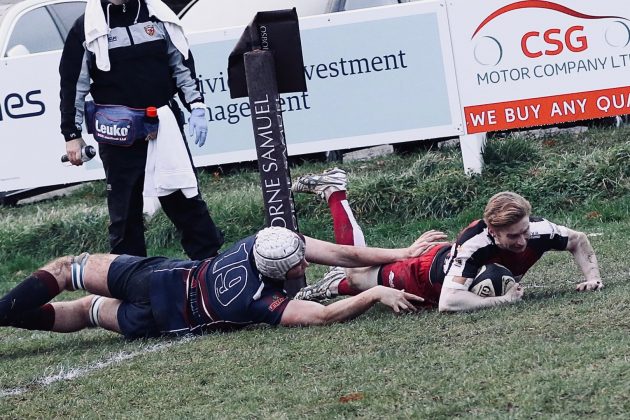In the latest in our Great Migration series, we hear about clubs signing 'duds' based on misleading CVs and highlights videos, and ask how widespread the issue is for amateurs
IN THE tangle of semi-professional and amateur clubs underneath the elite leagues in Europe, player retention and recruitment is a ceaseless necessity. However, with players hoping to broaden their horizons and teams looking ever further afield for talent, there are many anecdotes of deals gone awry. Some sides out there have surprising stories.
“We had a prop given to us by one company who turned out to be half blind!” says Marcus Holden, head coach at RC Hilversum, the champions of Holland’s top tier for the last three years. “This wasn’t on his CV. By all accounts he had a good youth career before a hereditary chronic disease hit him. I asked him if he put this on his CV for job applications and he said no as people would not invest in him. This really limits his game – for high balls, defence at rucks etc. He even ran on to the wrong side of the pitch in our grand final.
“But to fly a guy in from the other side of the world on an agreement that has been signed, also a paid deal, for him turning out to just about make second grade because of his blindness, does not sit well for future dealings.”
Holden also shares another story of a player Hilversum signed based on a highlights video they had seen in which the athlete “looked in great shape”, only for them to turn up at the club 40kg heavier. After checking the upload date of the YouTube package, they realised that it was six years old – an expensive oversight, with the club already paying for flights from New Zealand and visa costs before the player’s arrival.
SEE OUR INVESTIGATION IN THE NEW ISSUE
Hilversum have made many successful signings. They have taken on players who have featured in the ITM Cup in New Zealand and a few who have had Heineken Cup experience. However, the way they recruit foreigners has had to change recently, with the club moving away from agencies who cover a lot of levels all over the world, to dealing with “small-time agents” with small portfolios. Having established trust is key for Holden.
While there are those who have moved from larger agencies, there are some who have tried to cut out recruiting paid players from abroad altogether. Dave Neale returned to Amersham & Chiltern of London 1 North this season, after two terms with Fullerians. Having seen the good done at a club he says do not pay a penny to players, he wanted to shake things up at his old stomping ground, where a number of overseas imports had come and gone without positively impacting the club.
On his change of direction, Neale says: “The big one for me is long term versus short term, which is why our focus has shifted to UK-based players. Overseas players are always a risk because a CV or video can’t show you their personality, they only show the ‘good’ parts – they’re a short-term fix. Also the expense of it with visas, flights, accommodation and more is worth thousands of pounds per player.
“With local or UK-based players you can meet them before they sign and build a squad over three to five seasons which is vital to success. Otherwise you’re looking for a new set of players every 18 months.
“I think a lot of clubs are doing the same now and moving away from overseas players as they are expensive risks. Regardless of how much the budget is, I think it’s how you spend it and in the past a lot has been spent on overrated, short-term players which is no way to build a squad. Hopefully moving forward we can get it right and build a young, local, loyal squad. That’s the plan.”

Clean take: A&C claim a lineout against Colchester (pic via Amersham)
In the course of talking with some amateur clubs in Holland and England, we heard rumours of clubs being ‘stung’ by agencies. In our recent investigation into The Great Migration, as well as discussing the positive side of players moving abroad and the tragic side of it, Rugby World spoke with agents about the bad reputations that are thrown around. Sometimes people fall into the trap of unfairly branding all agents and agencies as being the same.
FOR THE LATEST SUBSCRIPTION OFFERS, CLICK HERE
Asked for an official statement on their view on this issue, Syd Douglas, the managing director of the Rah Rah Rugby agency, said: “To be honest this type of thing is not new. Clubs from all over the world have some form of teething problem with foreign players. But just like any industry HR system, this will always be the case if both parties are not completely honest about their situations and reasons for recruiting.
“The environment around the playing group is also a big aspect that is rarely addressed in the recruitment phase. This is a hurdle that clubs find hard to match, especially when they are recruiting a player generally on just their playing ability and not actually seeing if their personality is also a match for their playing or club culture.
“You hear stories from clubs all the time saying they had a dud recruit but you hear the same thing from players too. About clubs promising things but delivering little – or less than expected.
“Rah Rah is there to try to minimise the risk and make matches based on more than just ability. Attitude and ethics play a big part of our recruitment process too.”
If you represent an amateur or semi-professional club with experience of the issues mentioned here – good or bad – we would love to hear from you via rugbyworldletters@timeinc.com






